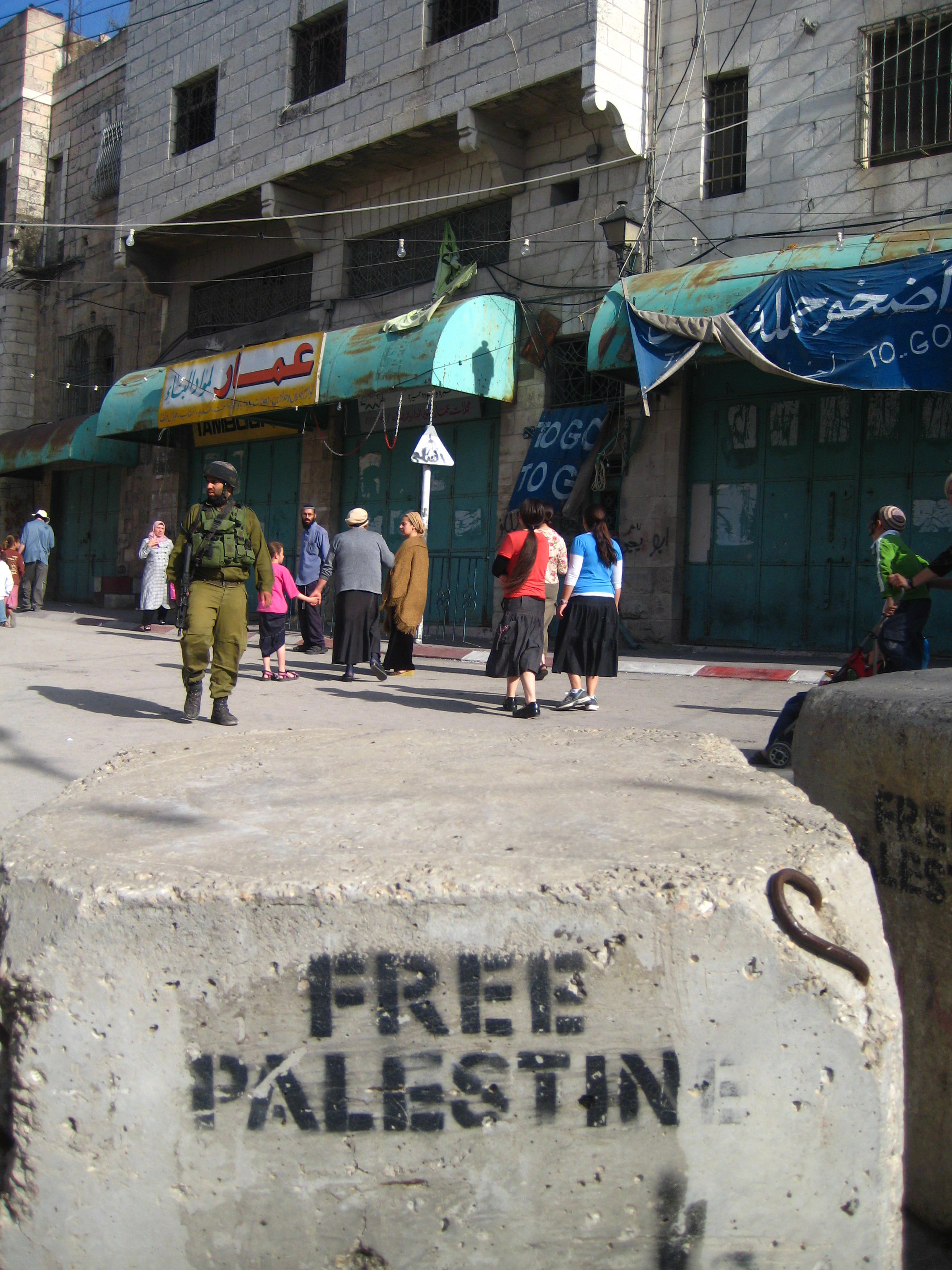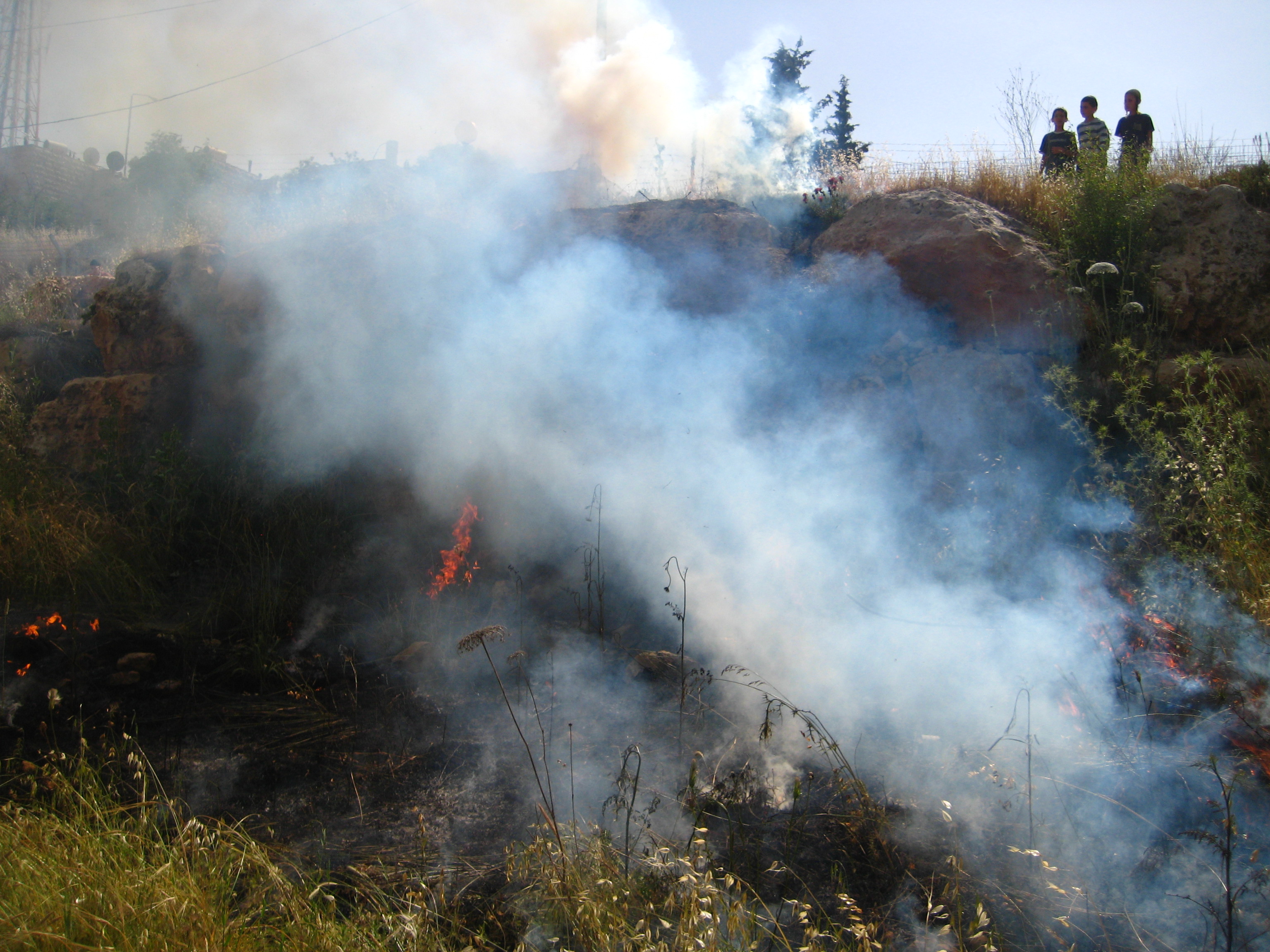Tag: Hebron
-
Random arrests and assaults during and after Nakba day in Hebron
29 May 2011 | International Solidarity Movement Several teenage boys were arrested after the 15 May Nakba Day demonstration in Hebron. On May 24 the International Solidarity Movement met one 16 year old boy and his father to hear his story. The boy had been on his way home from work at around 6 pm…
-
Apartheid expanding in Hebron
24 May 2011 | International Solidarity Movement During Sunday 22nd May several streets were closed in the H1 area of Hebron for illegal settlers to walk through the city followed by approximately 50 soldiers. Meanwhile the shops in the Palestinian area were closed and Palestinians were prohibited from walking through the streets and entering through…
-
Fire at field near Kiryat Arba, Hebron
22 May 2011 | International Solidarity Movement On Thursday May 19 a part of the field of Abd al Kareim al Jabari in Western Hebron, where International Solidarity Movement activists have been present for the past ten days, was set on fire. Settler children started to throw stones at the ISM activists as soon as…


